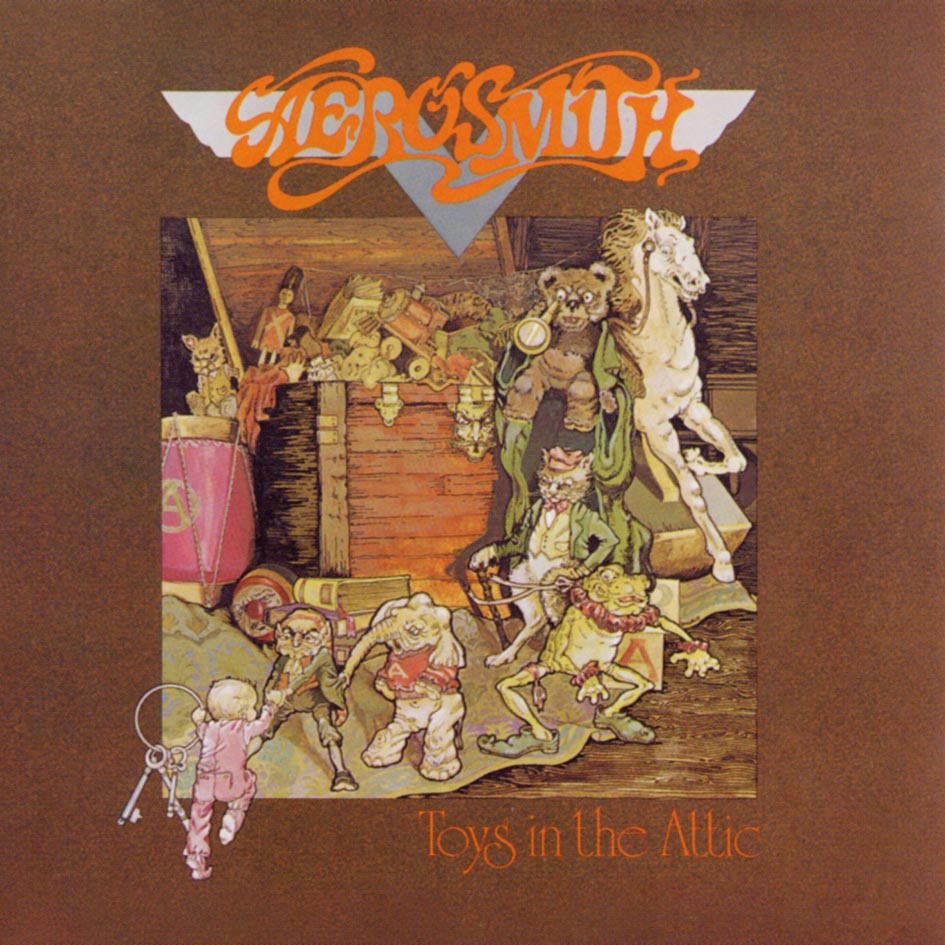
Toys in the Attic (1975)

1.Toys in the Attic
2.Uncle Salty
3.Adam's Apple
4.Walk This Way
5.Big Ten Inch Record
6.Sweet Emotion
7.No More No More
8.Round and Round
9.You See Me Crying
When Toys in the Attic landed in 1975, Aerosmith ceased to be just another loud band clawing its way through smoky clubs. They became artists of stature. This third studio outing didn’t merely build on their blues-infused roots—it redefined them with a chutzpah that none of their peers managed to capture quite so convincingly. Whereas earlier efforts hinted at promise, Toys made it concrete: the band had come of age.
From the get-go, the album revels in contradiction. The title track bludgeons forward with all the subtlety of a freight train—raw, quick, relentless. It’s the only kinda misstep on the record, however. All noise, no nuance. A brash opener that doesn’t quite hold up under repeated listening. But almost instantly, redemption appears in the shape of Uncle Salty, a seedy character study wrapped in sultry grooves and sleazy undertones. It's here that Aerosmith show they can make filth poetic.
Next up, Adam’s Apple, a curious theological nod dressed in classic rock swagger. Tyler preaches from the pulpit of desire, and Perry delivers his gospel through fretwork laced with funk. Not quite spiritual, but unmistakably intoxicating.
And then—Walk This Way. What can be said that hasn’t already been screamed from every arena for the last five decades? Perry’s iconic riff is not so much played as it is thrown, dragging the listener into a rhythm that’s equal parts James Brown and Led Zeppelin. Tyler spits out verses with an urgency that’s both comical and cool. A street-corner tale wrapped in stadium gloss. It’s not heavy metal. It’s not funk. It’s just... Aerosmith.
The band slips into the blues with Big Ten Inch Record, a double entendre-laden cover delivered with tongue planted firmly in cheek. Tyler knows exactly how far to push the innuendo without losing the song’s swing. It’s charmingly perverse and effortlessly smooth.
Perhaps the real surprise of Toys in the Attic is its depth. Sweet Emotion, the album’s emotional linchpin, is moody and expansive, a layered production that oozes with menace and melancholy. Built on Tom Hamilton’s hypnotic bass line and a cloud of talk box haze, it’s the band’s most mature moment to date. When it resurfaced years later to chart again in 1990, it sounded as fresh and threatening as ever.
Even the album’s closing track, You See Me Crying, a piano-led ballad dripping in pathos, manages to stay just this side of maudlin. It's a tender gesture from a band better known for its crotch than its heart, and it works precisely because it doesn’t try too hard.
With Toys in the Attic, Aerosmith found their voice. Not just a rock band, but a band capable of nuance, humor, danger, and—on rare occasions—even grace. The drugs hadn’t yet dulled the edges. The fame hadn’t yet inflated the egos. For a brief, shimmering moment, they were untouchable.